detail profile marie epstein

Marie Epstein
Marie-Antonine Epstein
atau dikenal sebagai
Riwayat Hidup
Born to a French Jewish father and a Polish Catholic mother in present-day Poland, Marie Epstein moved to Switzerland with her mother Hélène and her brother Jean after the death of her father Jules in January 1907.
The Epsteins later established themselves in Lyon, France, where Jean was completing his studies, and then in Paris around 1922, just a few months before Jean directed his first two feature films, L’Auberge Rouge (1923) and Coeur fidèle (1923).
It was also in the early 1920s that Marie became involved in the world of cinema.
She started as an actress—in L’Auberge rouge, where she appeared as an extra in just a few early shots, and in Coeur fidèle, two films that she co-wrote with Jean—but found it difficult to secure more roles.
She then turned fully to screenwriting, which led her to work as an assistant director and editor.
Through the intervention of French director and producer Jean Benoit-Lévy, Marie also became a director at a time when there were few women filmmakers in France.
After she had been Benoit-Lévy’s assistant on several silent film documentaries in the 1920s, she then co-directed, wrote, and edited eight sound fiction films with him in the late 1920s and 1930s.
During that period, she also directed at least one short film on her own, possibly more.
After World War II, and the death of her brother Jean in 1953, Marie was hired by Henri Langlois as a film preservationist at the Cinémathèque française, a job she held until her retirement in 1977.
Info Pribadi
Peran Yang Di Mainkan Marie Epstein
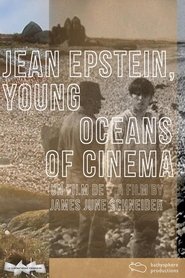 This portrait of the French film...
This portrait of the French film...Jean Epstein, Young Oceans of Cinema 2011
This portrait of the French film theorist and avant-garde director Jean Epstein (1897-1953) concentrates on the period when he filmed in Brittany, the spot where he became inspired by the sea. Using rare archive footage, Jean Epstein, Young Oceans of Cinema also looks at Epstein’s views on the specificity of the film medium.
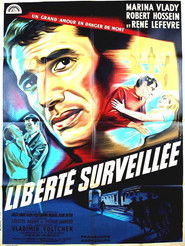 JeanPaul is a Frenchman who yearns...
JeanPaul is a Frenchman who yearns...Provisional Liberty 1958
Jean-Paul is a Frenchman who yearns to live in communist Czechoslovakia. His wish is granted when, mistaken as a masseur of a French boating team, he manages to elude the democratic authorities long enough to scamper over the Czech border.
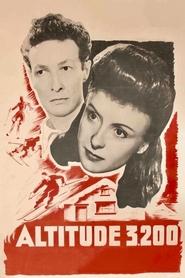 Altitude 3200 asks the question and provides...
Altitude 3200 asks the question and provides...Youth in Revolt 1938
"Altitude 3.200" asks the question and provides the premise of what would happen if a group of young people----poor, rich, discontented, bored--- were given an idyllic community in which to live. Call it a colony. Call it a village. Call it one-world. Mainly call it a futile exercise in changing human nature, mores, culture and attitudes at any altitude. For t'ain't no time before clashing personalities, petty jealousy, violence and---that old demon---love create havoc. And isn't much longer before they become re-united in the face of an avalanche that threatens to destroy them. They all return to whence they came, sadder and wiser.
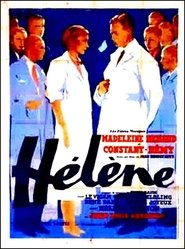 Helene is based on Helene Wilfur...
Helene is based on Helene Wilfur...Hélène 1936
Helene is based on Helene Wilfur, a novel by Vicki (Grand Hotel) Baum. Madeleine Renaud essays the title role, a young medical student in love with aspiring musician Pierre Regnier (Jean-Lous Barrault). Pierre's father, a noted surgeon, puts pressure on his son to give up music in favor of medicine. Unable to withstand his father's remonstrations, Pierre kills himself, prompting the grieving Madeleine to forget all about romance and dedicate her life to the cause of healing others. Wilfur avoids the usual soap-opera goo by offering realistic performances and credible dialogue (the English-language subtitles were composed by erudite film critic Herman G. Weinberg).
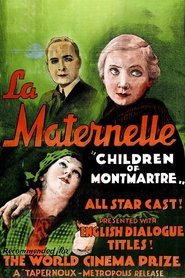 When her father files bankruptcy and...
When her father files bankruptcy and...Children of Montmartre 1933
When her father files bankruptcy and then dies, Rose's fiancé jilts her; she takes a job as a maid in a Montmartre kindergarten with 150 poor children. Rose gives each child loving attention, and soon she's their favorite. An especially needy child is Marie, a prostitute's daughter. Rose and she bond, and Marie is jealous of all attentions paid Rose, especially those of Dr. Libois, the school's physician. When Rose inadvertently guides the children through the educational experiment of a visiting scholar, and then discloses she has a college degree and is working beneath her station, the principal wants to fire her. Is there any way she can stay? And what will happen to Marie?
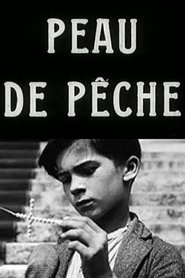 On his way out of a...
On his way out of a...Peach Skin 1929
On his way out of a wedding, a young boy named Peacheskin finds a jewel by chance. Bringing it back to its owner, she becomes his benefactress in the years that pass...At the end of a wedding, a young boy named peau de pêche finds by chance a jewel. Bringing it back to its owner, she becomes his benefactress over the years...
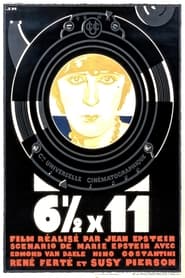 A renowned doctor and his brother...
A renowned doctor and his brother...Six and a Half by Eleven 1927
A renowned doctor and his brother live and work together until the brother falls in love with Marie, a singer, and gives up medicine to be with her. After a time however, she misses her old life and goes back on the stage - an act which leads her lover to commit suicide. Later the doctor and Marie also meet, and she becomes his mistress. He finds out about his brother's suicide and goes through his artifacts looking for a clue as to what might have been the cause. He finds a photograph of Marie and realizes the truth, which decimates their relationship.
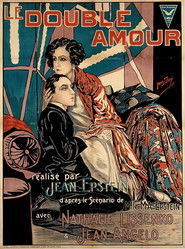 Jacques PrmontSolne is a degenerate gambler...
Jacques PrmontSolne is a degenerate gambler...Double Love 1925
Jacques Prémont-Solène is a degenerate gambler and his losses at baccarat have bankrupted his lover, Laure Maresco. When he steals four hundred thousand francs and loses that at the gambling tables, he flees to the United States, and Nathalie takes the blame. Twenty years later, she has a flourishing career as a nightclub singer, but their son is just as inept a gambler as his father had been.
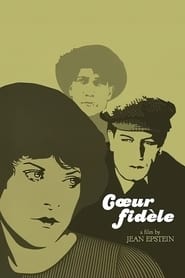 The good guys win out in...
The good guys win out in...Cœur fidèle 1923
The good guys win out in this sweet tale about a young orphan who is abused for much of her life but who eventually finds happiness when she marries an honest man who extricates her from her situation.
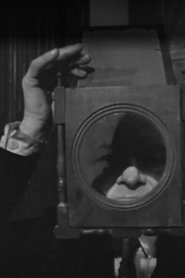
 As its title indicates La Mort...
As its title indicates La Mort... A mother sells a photo of...
A mother sells a photo of...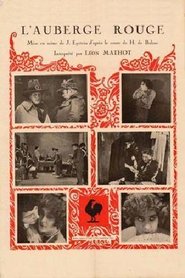 Two young doctors surprised by the...
Two young doctors surprised by the...